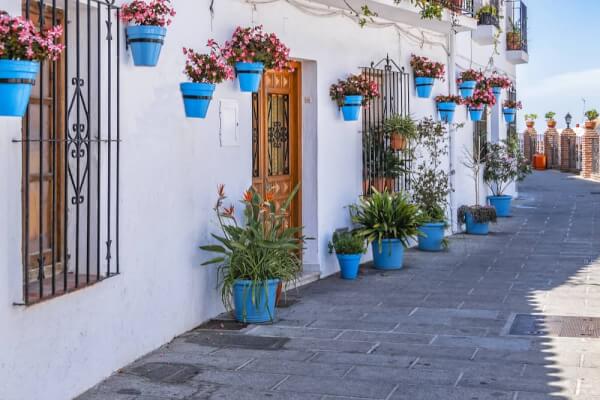Buying property in Ireland as a foreigner
The essential guide to buying property in Ireland as a foreigner, including property prices, where to buy, mortgages, fees and more.

The beautiful country of Thailand is an attractive prospect if you’re thinking of buying somewhere to live: whether you’re on the lookout for a beachside retreat or an apartment in bustling Bangkok, Thailand could be the place for you. However, property ownership always comes with costs attached, and that includes taxes. Here’s a look at the taxes that you have to pay when you buy, sell or simply own property in Thailand.
Property tax is any tax that you pay because of property you buy, sell or own. In Thailand, like in most countries, there are a number of different property taxes that you’ll have to pay if you get involved with the property market.
Some Thai property taxes are paid by the buyer, and some by the seller - see below for more info. If property is rented out, the owner has the tax liability.
If you’re not a Thai citizen, the same rules apply, although you should be aware that it’s not legally possible for you to own land in Thailand. So you’ll have to rent the land the property’s on.
(Source 31 December 2017)
In general, there are two categories of property tax:
Thailand has examples of both - although not everyone has to pay maintenance taxes. Here’s a rundown of each tax that you might have to pay.
There are 4 main types of sales tax in Thailand, although you shouldn’t have to pay all of them. They are:
Read more about each below. Note that while they are all charged as percentage figures, some are based on the appraised property value and some on the sale value.
Individuals don’t have to pay a specific capital gains tax, although that doesn’t mean there's no tax on the profit. Any profit made on property may be taxed in the broader category of income tax.
(Source 1 Source 2 31 December 2017)
(Source 1 Source 2 31 December 2017)
Withholding tax is technically a part of income tax, but rather than being paid when you do your tax return it’s payable straight away when you sell a property.
(Source 1 Source 2 31 December 2017)
(Source 1 31 December 2017)
(Source 1 31 December 2017)
| Any property | Property owned for more than 5 years, or being given to family member etc | Property owned for less than 5 years | Buyer | Seller | Cost | |
|---|---|---|---|---|---|---|
| Transfer fee | ✓ | ✓ | 2% of sale value | |||
| Withholding tax | ✓ | ✓ | Companies: 1% of sale or appraised value;Individuals: taxed progressively | |||
| Stamp duty | ✓ | ✓ | 0.5% of sale value | |||
| Business tax | ✓ | ✓ | 3.3% of sale or appraised value |
There’s currently just one principal maintenance tax to pay in Thailand, and even that is only payable if you rent your property out. Alongside that, you’ll need to pay income tax on your rental gains.
Currently, local authorities in Thailand charge a ‘house and land tax’ as follows:
But keep your eyes peeled! Changes are afoot. Under a proposed new system, owner-occupiers and owners of unused or vacant property, might be charged too, vastly increasing the number of property owners who have to pay this tax. Rates would vary depending on how the property is used, ranging from 0.03% up to 5%.
(Source 1 31 December 2017)
As well as paying the house and land tax, people who rent out Thai property must pay income tax on the rental payments they receive.
(Source 1 31 December 2017)
| Type of property | Deductions |
|---|---|
| Buildings and wharves | 30% |
| Agricultural land | 20% |
| All other land | 15% |
| Other types of property | 10% |
(Source 1 31 December 2017)
The Thai tax year is the calendar year and income tax payments are due by the end of March. You may also have to submit half-yearly returns and pay some of the bill in September. It’s up to you as the homeowner to declare your property to the authorities, so don’t sit around waiting for a bill - you could be caught out.
Sales taxes generally need to be paid at around the same time as other fees when the property changes hands. Specific business tax is paid via monthly tax returns.
(Source 1 Source 2 Source 3 31 December 2017)
The answer varies from tax to tax: for rental income and specific business tax, there are tax returns to fill out, while the process is different for the transfer fee and stamp duty. You should speak to your agent or attorney to get a full fee schedule and check payment methods.
Take a look at the Thai Revenue Department and see if you can make your payment via one of the government’s e-services. Paying online can take a lot of the hassle out of the process.
But if you’re living internationally or have bank accounts in other countries around the world, even an online payment to the Thai government can be complicated. Making an international transfer into or out of Thailand can be expensive and time-consuming if you use a bank: banks often mark up the exchange rate by as much as 4-5%, meaning that the transfer costs you far more than it should.
Wise can help: always providing the mid-market exchange rate, which is the only rate that’s fair to use, Wise usually works out far cheaper than using a traditional bank to make your transfer. Whether you’re looking to pay your tax bill directly from abroad (check that they accept third-party payments first) or simply moving money into your Thai account, take a look at Wise now and see if you could save money.
Property always comes with costs attached, so it pays to know what’s coming. Good luck looking into property taxes for your Thai property.
| ----- |
| This publication is provided for general information purposes only and is not intended to cover every aspect of the topics which it deals. It is not intended to amount to advice on which you should rely. You must obtain professional or specialist advice before taking, or refraining from, any action on the basis of the content in this publication. The information in this publication does not constitute legal, tax or other professional advice from TransferWise Limited or its affiliates. Prior results do not guarantee a similar outcome. We make no representations, warranties or guarantees, whether express or implied, that the content is the publication is accurate, complete or up to date. |
*Please see terms of use and product availability for your region or visit Wise fees and pricing for the most up to date pricing and fee information.
This publication is provided for general information purposes and does not constitute legal, tax or other professional advice from Wise Payments Limited or its subsidiaries and its affiliates, and it is not intended as a substitute for obtaining advice from a financial advisor or any other professional.
We make no representations, warranties or guarantees, whether expressed or implied, that the content in the publication is accurate, complete or up to date.

The essential guide to buying property in Ireland as a foreigner, including property prices, where to buy, mortgages, fees and more.

Everything you need to know to buy property in Portugal as a foreigner from the UK. Read about where and how to buy property, average house prices, and more.

The essential guide to help you buy property in France as a foreigner coming from the UK – from fees and taxes to average house prices.

The essential guide to buying property in Italy as a foreigner, including average prices, best places to buy and key legal information.

Want to buy property in Spain as a foreigner from the UK? Read our guide on buying property in Spain, including average prices, legal info and more.

The essential guide to buying property in Turkey as a foreigner, including property prices, where to buy, mortgages, fees and more.